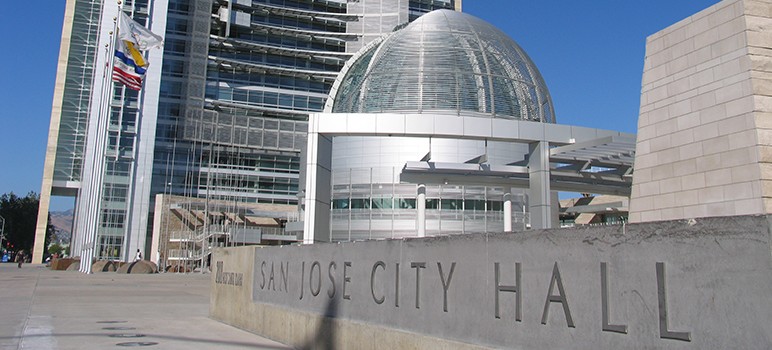An appointed group of volunteers working to change the way San Jose is governed is getting more money from the city in an effort to increase outreach and community engagement.
On Tuesday, the San Jose City Council unanimously approved $110,000 to the Charter Review Commission so it could get feedback from historically underserved areas and hire translators and interpreters to reach various communities.
The additional money would also be used to increase qualitative research and hire at least one consultant to review and provide advice for any potential changes to the city charter.
“The provisions of the city charter that we’ll be recommending to the mayor and council later this year will have lasting impacts on our city and its residents,” Commissioner Jeremy Barousse said. “That’s why it’s important that we look at every avenue ... that includes equity for our city and its residents.”
The commission requested about $12,000 for translation services, $35,000 for consulting services and $63,000 for grassroots organization outreach.
Organizations included African American Community Services Agency, Amigos De Guadalupe, Asian Law Alliance, Council on American Islamic Relations (CAIR), Silicon Valley De-Bug and SOMOS Mayfair, among many other organizations for their “proven track record of effective community engagement and deep community relationships,” Matt King, political director for nonprofit Sacred Heart Community Service wrote in a letter to the City Council.
Commissioners also requested upwards of $125,000 to hire outside legal counsel, however council members agreed the city attorney’s office was best suited to provide the commission with municipal code advice and legal guidance.
“We ought to take advantage of the expertise we have in house,” Mayor Sam Liccardo said. “And paying hundreds if not thousands of dollars per hour for a private law firm to render those same services is not the best use of resources.”
Frederick Ferrer, the commission chair, said hiring outside counsel could avoid any potential conflict of interests and would help give the commission creative legal suggestions to change the city charter.
He pointed to the 1985 charter commission which had changed the way district elections were held in San Jose.
“When the commission said we really want to look at equity in these kinds of areas, it was the legal side that came back with ideas,” Ferrer said. “Moving to district elections ... was state of the art in terms of the law at that time.”
However, at the time of the 1985 Commission, the city attorney’s office was much smaller than it is now, which is why the commission likely had to rely on hiring outside legal counsel, City Attorney Nora Frimann said.
Council members also couldn’t think of potential conflicts of interests that could arise from working with the city attorney’s office.
The only exception was if the commission was planning on discussing pensions, which Ferrer confirmed it was not.
Still, Liccardo and others agreed that the City Council would revisit the request for outside counsel if a conflict-of-interest issue did arise later.
The Charter Review Commission was formed in July 2020 after Liccardo pushed for a “strong mayor” form of governance that would give the mayor veto power and authority to hire department heads without council approval.
It is a form of governance that many large cities like Los Angeles and San Francisco have as well.
However, critics were quick to call Liccardo’s proposal a power grab because if approved at the time, it would’ve extended his term by two more years.
Liccardo eventually dropped the proposal and instead the City Council voted to create the Charter Review Commission to evaluate charter changes.
Now, with the newly-approved funding, the commission will be better equipped to achieve their goals to increase outreach efforts to underserved areas, especially East San Jose, Ferrer said.

